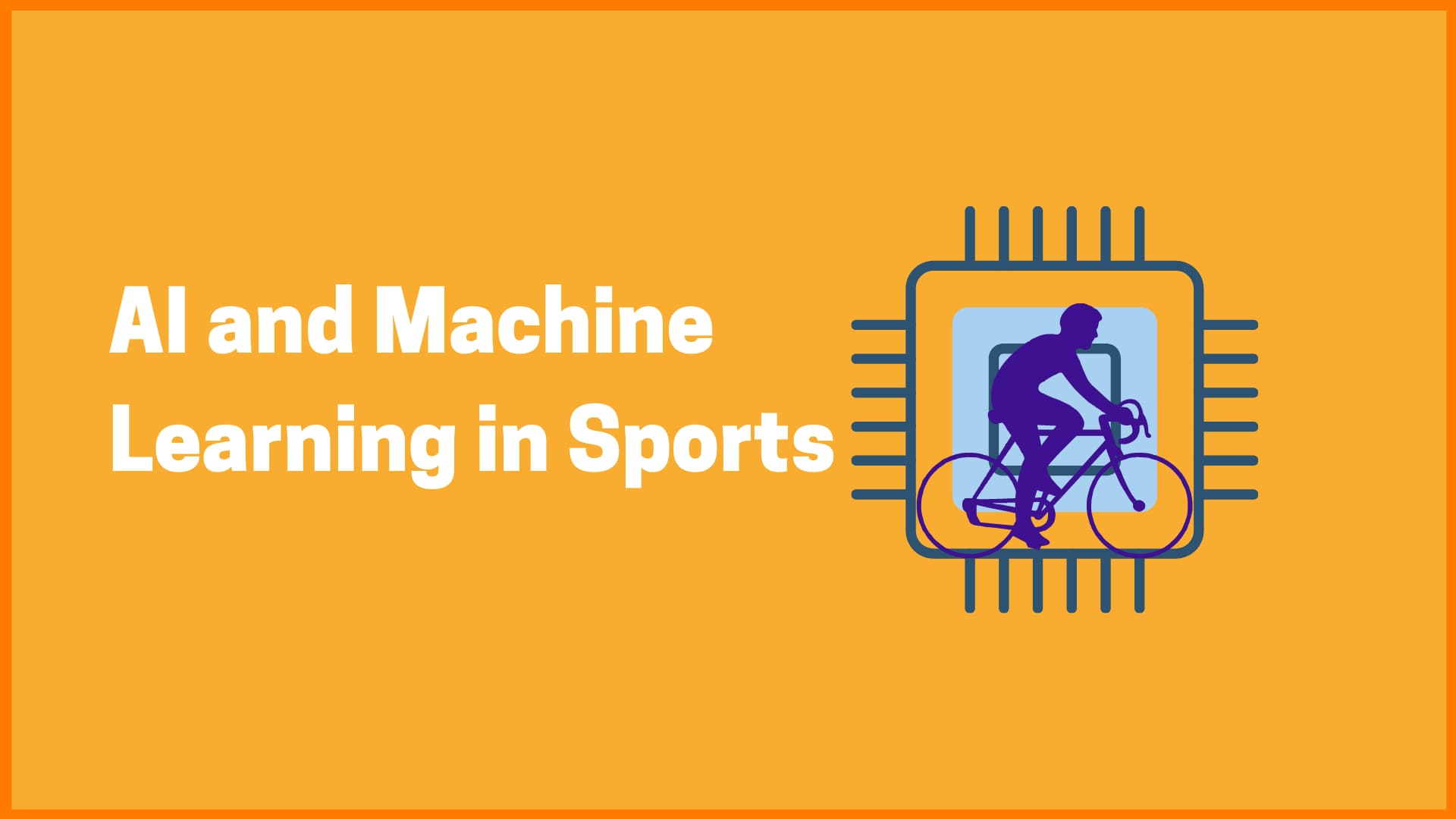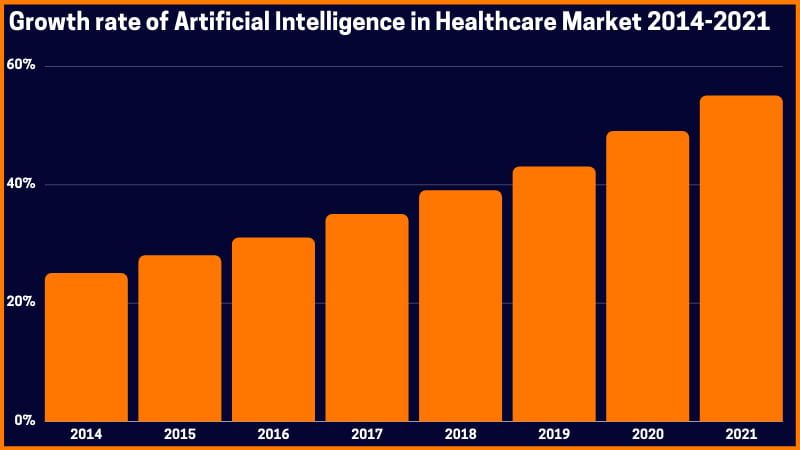AI and Machine Learning in Sports - How it Changes The Game?
esports
The rise of AI and Machine Learning has enveloped every walk of life. Cutting edge technologies like AI and Machine learning are being adopted to better analyse, optimise and organise every aspect in the field of sports. To gain a competitive edge over their opponents, athletes and management are required to gather every information about the individual and team performances they possibly can.
From Football to Formula 1, AI and Machine learning is being used to strategize, train, advertise and do so much more. Artificial Intelligence and virtual reality are increasingly used to boost fan engagement and provide real-time analytics. One famous instance is the movie Moneyball helmed by Brad Pitt, where they show how the use of analytics can bring a mediocre baseball team to the spotlight.
Machine Learning has been adopted rapidly in the world of sports analytics. Due to a large amount of raw data available in sports such as player statistics, team's recent win/loss etc. This data is used to build predictive machine learning models to make better decisions to help management. Machine learning and predictive analysis are playing a huge role right from coaching, talent scouting to refereeing and broadcasting. Sports analytics industry market size is expected to gain 2.46 billion dollars by 2025. In the world of sports, raw data are abundant, and using Machine Learning helps to analyse and interpret this data. The questions you will ask the data will decide what you can do with it.
Let us take a look at where AI and Machine Learning are being used today and the future it can take.
AI in Sports Recruitment and Coaching
Analysing Player Behaviour
AI in Talent Scouting
Refereeing
Improving Health, Fitness and Safety
Streaming and Broadcasting
Legal Sports Betting
Improving Health, Fitness and Safety
AI in Sports Recruitment and Coaching

Behind every winning team, there are experienced coaches. But now they are getting help from Augmented AI, with the use of wearable sensors and high-speed cameras which are feeding data that are leading to improved training. Sports teams, be it cricket, football or any other game, are increasingly using player's performance data to measure their potential. Traditional coaching's biggest weak spot is it takes many years to hone the skills. Now coaches are getting help from AI assistants, which is helping to improve the in-game strategy and optimising the team's line up based on algorithms that study their peers and the possible game tactics.
Recognising potential, in whichever field may it be, is very human talent. Though not all teams are using sports analytics and machine learning due to high costs involved, explaining complex analytical methods to coaches can be problematic without technological assistance.
Analysing Player Behaviour
AI can do what humans cannot, that evaluates various parameters side by side. Using wearable devices and high-speed cameras, AI can track individual player's data throughout the match. This technology can identify minuscule differences and help us understand how the players perform under stress. AI technology can perform in-game strategy analysis during the matches and communicate better real-time game plan changes to the coaches and then to the players.
AI in Talent Scouting
The sports industry is essentially known for its scouting for best players and talent for the professional teams. Talent scouting is the backbone of many sports organisations, where sports team gather data on useful information such as player strengths and weaknesses, opponent teams strategies. S.L Benfica, a top-tier football team in Portugal, makes more money in finding, developing, training and selling players than actually playing the game.
Football teams are well known for making trades and selling players with other clubs and leagues, but Benfica has turned it into an art, buying young talent, using advanced technology, data science and training to improve player health and performance and later selling them for tens of million pounds, sometimes as much as 10 to 20 times their original fee.
Historical data is well documented in sports, with use of AI we can make predictions to the future potentials of player's before investing in them and can be used in estimating the market value of the player's to make the right offers while acquiring new talent.

Refereeing
Refereeing is one of the earliest applications of machine learning and artificial intelligence in sports. The technology helps bring precision to the judgement making the game to be fair and law-abiding. For instance, in cricket, hawk-eye technology is used to identify whether the batsman is out or not in cases of LBW.
Improving Health, Fitness and Safety
It is a well-known fact that AI and ML are transforming the healthcare industry in many ways. The predictive and diagnostic capabilities of AI can also be applied to the sports industry. In sports, the physical health and fitness of the players are extremely important. Teams invest heavily to keep the physical and mental well being of the players, to maintain their peak physical condition and perform optimally.

Player skills can be classified into physical skills and mental skills. Physical skills comprise objectives such as power, endurance, flexibility etc, and mental skills are an alloy of concentration, emotion management, cognitive and communicative skills. Each sport measures these skills in different ways and adopting machine learning in sports models acts as an intersection of subjective and objective data in such a way that individual training programs can be designed for specific players. The physical toll of sports is being well documented and preventive wellness programs use predictive analysis to identify a chronic problem before it aggravates.
Streaming and Broadcasting
AI and ML platforms are used in cameras recording the match, where sports broadcasters can selectively capture the highlights and distribute what they wish, completely disrupting monetisation of sporting events. AI can automatically provide subtitles for live events in different languages based on the viewer's location and language preferences. AI is used in sports marketing to identify the best camera angles during the match and as well as in highlights/replays to display on a viewer's screen.
AI is used in providing statistical information to commentators helping them to run a better live commentary. AI can be used in advertising to identify the right opportunities to present ads based on crowd excitement levels in sporting arenas and to present relevant ads based on the viewer's demographics. Brands can get better advertising opportunities based on the top moments of the game as identified by AI.
Legal Sports Betting
Whether a user bets on a team or a player they love, or against the team they dislike, they need to have some knowledge in terms of technical data. The sports betting industry is joining hands with artificial intelligence to use this data. For the algorithms to work well, the sport has to be predictive and follow a set of rules. For instance, cricket has a set of rules with a limited duration and gets repeatable, where multiple videos can be run with the algorithm to see patterns that can be predicted by AI and ML. Though a study of sports betting algorithm and interpretation is still in its early stages, various organisations are continuously researching the field.
FAQs on AI in Sports Industry
How AI is used in Sports?
AI helps to analyze the performance of the player and hence help to select the best ones for a match.
What industry uses AI the most?
Healthcare, Retail , Entertainment and Gaming are some of the major industries utilizing AI.
What are the 4 types of AI?
The four types of AI are Reactive machines, limited memory, Theory of mind and Self-awareness.
Conclusion
Artificial intelligence and machine learning as emerging technologies has started to impact every possible aspect of a sport. With sophistication in data analysis, visualisation and prediction, the industry is set to witness higher precision from scouting and recruiting talent to get more insights on the performance of a sport.
Must have tools for startups - Recommended by StartupTalky
- Convert Visitors into Leads- SeizeLead
- Website Builder SquareSpace
- Run your business Smoothly Systeme.io
- Stock Images Shutterstock







